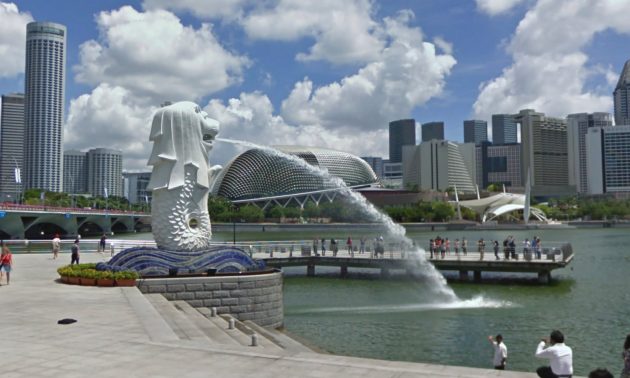A Singapore court has jailed two men charged over a $2.2-billion money-laundering case, which had put a spotlight on the city-state’s handling of financial crime.
The case is believed to have led to stricter scrutiny of wealthy individuals looking to set up family offices in Singapore, particularly Chinese keen to get money of the mainland.
The imposition of stricter regulations by authorities in both Singapore and China and a longer approval process is said to have slowed the number of Chinese shifting to the Southeast Asian city, according to a report by Asia Sentinel.
ALSO SEE: China Ramps Up AI Push, Eyes $1.4tn Industry By 2030 – Xinhua
Meanwhile, the jail terms given to the two men sentenced last week – Su Wenqiang, a 32-year-old Cambodian originally from China, and Su Haijin – have drawn criticism on social media and from crime analysts as “light” given the massive criminal proceeds involved in the case.
A police investigation found that Su Wenqiang and his associates were involved in online gambling in the Philippines and that bank accounts he set up in Singapore had received substantial funds in 2021 from a company he had also registered locally.
Police seized about S$6 million, plus 55 properties, 15 vehicles, plus dozens of luxury bags and pieces of jewellery from Su, his wife and companies, along with more than S$38 million in cryptocurrencies.
Su pleaded guilty to concealing or transferring benefits from criminal conduct and was sentenced to 13 months in prison, but may only serve nine months behind bars.
Meanwhile, Su Haijin, a Chinese-born Cypriot who had cars, apartments and other assets totalling S$170 million seized, also pleaded guilty to several similar charges of possessing and concealing criminal proceeds. He was sentenced to just 14 months in custody.
Doubt over banks’ anti-money laundering systems
Financial consultant and crime analyst Martin Purbrick said: “The scale of the funds and assets laundered by [Su and his] gang raises questions regarding the effectiveness of anti-money laundering (AML) compliance systems not only in Singapore, but globally.
“That a criminal gang can comfortably use the banking system and launder at least US$2 billion without challenge, and that this is only one gang that is prospering in the midst of a global cyber fraud epidemic, requires a review of the AML [anti-money-laundering] system itself.”
Su Wenqiang’s syndicate bought a large number of high-value assets and had used multiple banks, such as the Bank of China, ICBC, Credit Suisse, DBS, UOB and various others.
That led to a review by the Monetary Authority of Singapore (MAS) and the setting up of an inter-ministerial panel to reassess anti-money laundering regulations, Purbrick said.
The MAS set up a digital platform called COSMIC, to facilitate the sharing of customer information among major banks – DBS, OCBC, UOB, Citibank, HSBC, plus Standard Chartered – to help identify suspicious customers suspected of being money launderers.
The Monetary Authority (the country’s central bank) also tightened its regulations on cryptocurrencies, Purbrick said.
But the case showed that “major banks have not been able to detect ‘integration’, which criminals use to conduct large scale transactions with banks and distance proceeds of crime even further from the original crimes,” he said.
It showed that criminals were getting more nimble and creative than banks and regulatory authorities in the new era of digital payments.
Organised crime groups now have highly profitable new digital businesses – online gambling, sports betting and cyber fraud, which have boomed and become increasingly global activities.
For Purbrick, the big proceeds of organised crime will continue to avoid detection unless radical changes are made to stop money laundering and other financial crime.
- Jim Pollard
























